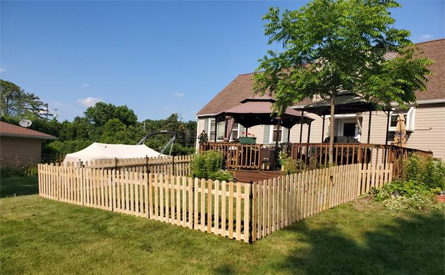Understanding the Uses and Benefits of Aluminum Common Nails in Construction Projects
12月 . 25, 2024 19:36
The Versatility of Aluminum Common Nails
Aluminum common nails are a staple in the construction and woodworking industries, valued for their lightweight properties, resistance to rust, and versatility. As a crucial component in various applications, these nails offer several advantages over traditional steel options, making them an essential choice for builders, carpenters, and DIY enthusiasts alike.
Understanding Aluminum Common Nails
Aluminum common nails are typically manufactured from high-quality aluminum alloys, which enhance their durability and performance. Unlike steel nails, aluminum nails do not corrode when exposed to moisture, making them ideal for outdoor projects or humid environments. This corrosion resistance is crucial for maintaining the integrity of structures over time, as rust can weaken and compromise the fastening strength.
Advantages of Aluminum Common Nails
1. Lightweight Nature One of the most significant advantages of aluminum common nails is their lightweight nature. This property makes them easier to handle during installation, reducing fatigue for workers, especially on larger projects. Their lightness also means that they create less overall weight in the materials being fastened, which can be an important factor in certain construction scenarios.
2. Corrosion Resistance As mentioned, aluminum does not rust. This characteristic is particularly beneficial in coastal areas where saltwater can accelerate corrosion, or in regions with high humidity where moisture levels are consistently elevated. Using aluminum nails in such environments extends the lifespan of the structure and enhances durability.
3. Non-Magnetic Properties Aluminum is a non-magnetic material, which can be an advantage in specific applications where magnetic interference should be minimized, such as in electronic equipment or in certain medical settings.
4. Ease of Driving Aluminum nails are generally easier to drive into wood compared to their steel counterparts. This results in less splitting of the wood, particularly in softer species, and a smoother installation process. The reduced likelihood of damaging the surrounding material makes aluminum common nails a favorable option for fine woodworking and cabinetry.
aluminum common nails

5. Environmental Impact Aluminum is a recyclable material, and the production of aluminum has significantly lower greenhouse gas emissions compared to steel. Choosing aluminum common nails is an environmentally friendly option, supporting sustainable construction practices.
Applications of Aluminum Common Nails
Aluminum common nails are used in various applications, including roofing, siding, and framing. Their resistance to corrosion makes them an excellent choice for securing shingles, especially in areas prone to moisture. In siding applications, aluminum nails are often used to fasten vinyl siding or trim, ensuring longevity without the risk of rust stains appearing on the surface.
Additionally, these nails are commonly found in interior applications where moisture is less of a concern but where weight reduction is desirable. For example, they can be utilized in cabinetry, moldings, and other fine woodworking projects. Their aesthetic appeal, given their clean finish, also makes them suitable for applications where the nail head might be visible.
Considerations When Using Aluminum Common Nails
While there are numerous advantages to using aluminum common nails, there are some considerations to keep in mind. For instance, although aluminum is strong, it may not be suitable for heavy-duty applications where maximum tensile strength is required. Builders should consider the specific requirements of their project and choose nails accordingly.
Additionally, using aluminum nails in conjunction with untreated wood can lead to potential issues with galvanic corrosion if dissimilar metals are introduced into the environment. Care should be taken to use compatible materials to avoid any reaction.
Conclusion
Aluminum common nails are a versatile and valuable choice in the construction and woodworking sectors. Their lightweight nature, resistance to rust and corrosion, and overall ease of use make them a preferred option for various applications. By understanding the benefits and considerations of aluminum nails, builders and DIY enthusiasts can make informed decisions, ensuring the success and durability of their projects. Whether for outdoor structures or intricate woodworking, aluminum common nails prove to be a reliable and effective fastening solution.




















